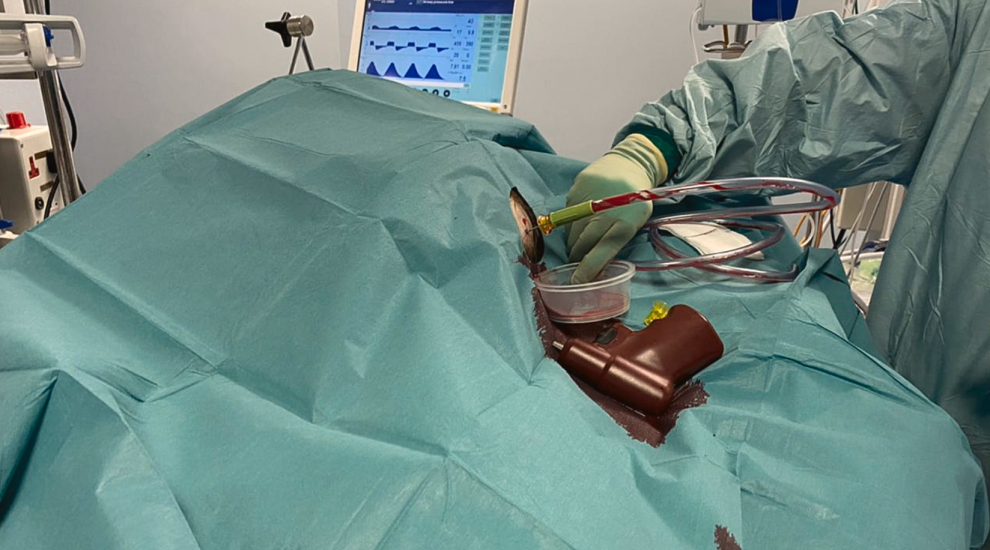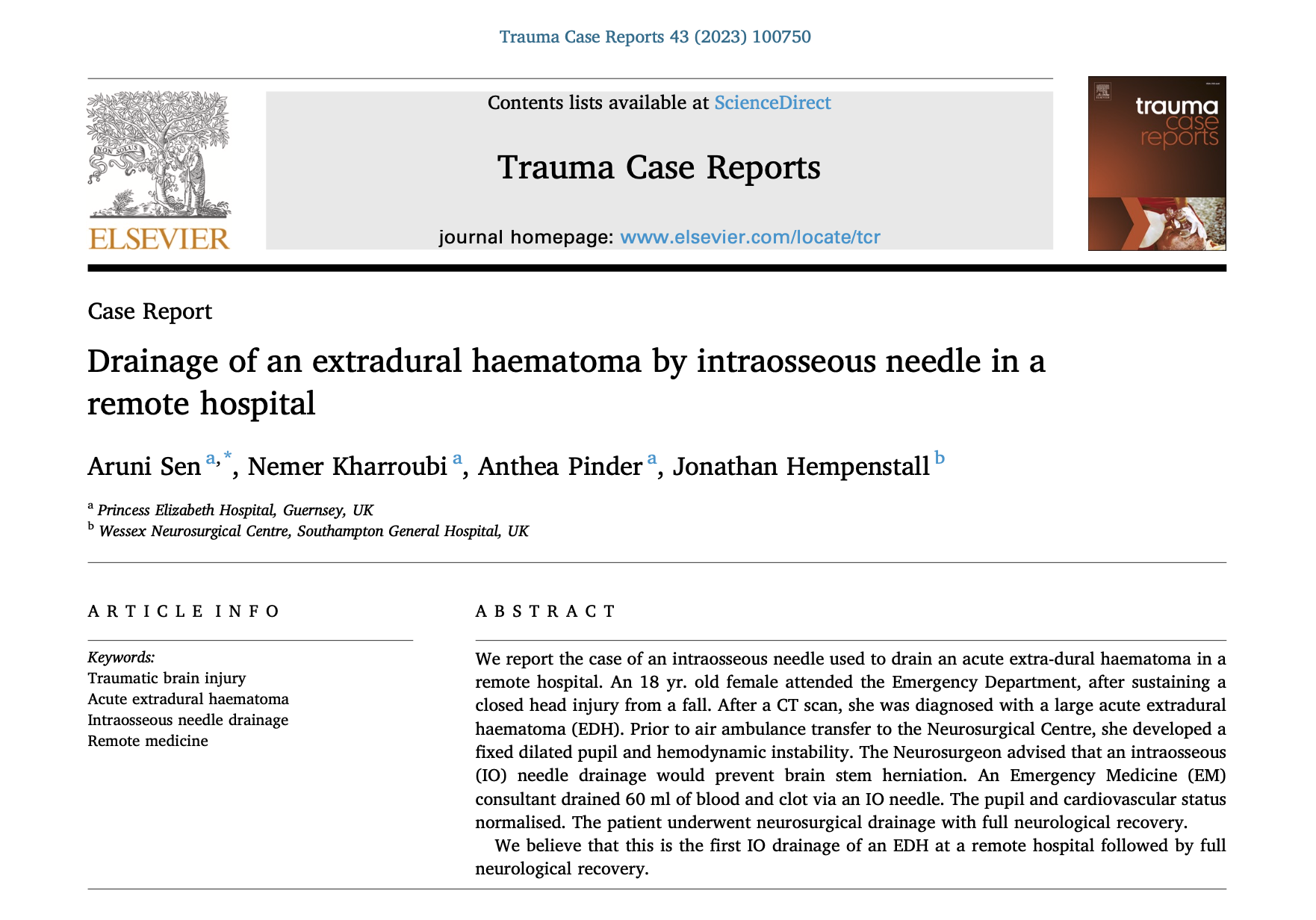


The life-saving treatment given to an injured 18-year old who needed blood drained from a brain injury has been recognised as the first time such a procedure has been used in a 'remote' hospital - which is the definition given to Guernsey's Princess Elizabeth Hospital.
When Sophie Lundon (now 20) suffered a fall, she needed urgent treatment for an extradural haematoma.
That is a collection of blood that forms between the skull and the brain which can result in death if it remains untreated.
Sophie's life was saved by three staff based in Guernsey who used an intraosseous needle (IO needle) to remove as much blood as possible before she was flown to Southampton for further urgent treatment. That process can take around two hours to arrange meaning it was vital that Sophie's treatment started in Guernsey immediately.

Pictured: Sophie Lundon's injuries were so severe she needed immediate life saving treatment.
The team in Guernsey - lead by Aruni Sen, the Lead Consultant at the PEH's Emergency Department - were guided by Jonathan Hempenstall, the Consultant Neurosurgeon based at the Wessex Neurological Centre.
This is now recognised as 'the first time such a procedure has been used in a remote hospital in UK followed by a full neurological recovery'. With it being such a landmark in medical science, Sophie's injury, treatment, and ongoing recovery has been detailed in a Trauma Case Report published at sciencedirect.com.
She says her brain injury continues to impact her but she will be forever grateful to Mr Aruni Sen and his colleagues who saved her life.
Above: Sophie Lundon's life was saved by the treatment given in Guernsey.
"I am delighted that Aruni and his colleagues have had this medical paper published. Their skills and expertise undoubtedly saved my life. As with any traumatic brain injury, I may look fit and healthy to anyone who sees me, but I am working hard with my family, friends, and the support of Headway, to live with the hidden impact of the injury and build a slightly different life for myself after the accident."
Mr Sen was asked to carry out the procedure due to his experience of using an IO needle for emergency resuscitation but it was the first time he or anyone had carried out the treatment in Guernsey.
"This particular procedure has only been used in a few specialist centres in the UK and USA. We believe that this is the first time that such a procedure has been used in a remote hospital in UK in consultation with a neurosurgical centre in another location.

"We saw immediate improvement once an initial amount of blood was removed which meant we could safely transfer Sophie to the UK for specialist care.
"For the team, we were delighted that Sophie was able to come home (where we know people recover better) and return to life and work after around 2 months. Without this pioneering treatment the outcome would have likely been death or severe brain injury."
Comments
Comments on this story express the views of the commentator only, not Bailiwick Publishing. We are unable to guarantee the accuracy of any of those comments.